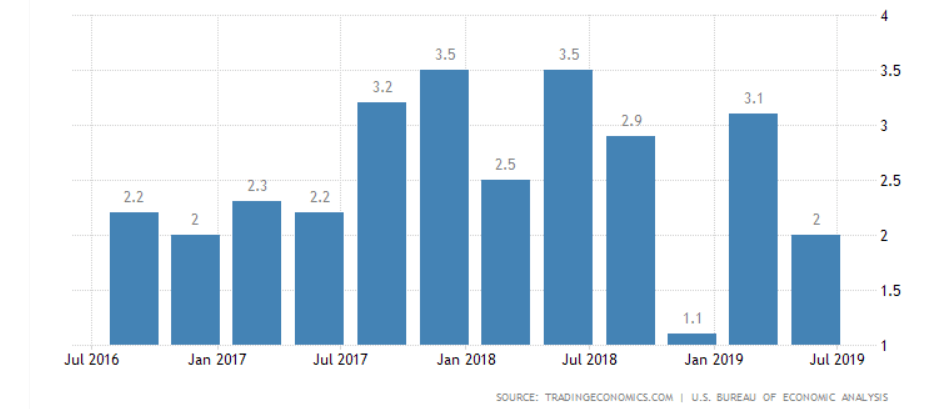Dow Futures’ Rally Faces Indecision as Recession Fears Engulf Trump Presidency

Dow futures are coming up short as markets try to recover from a punishing reversal Tuesday. | Image: Spencer Platt/Getty Images/AFP
Futures on the Dow Jones Industrial Average (DJIA) rose in aftermarket trading Wednesday, though gains were limited by fears of a U.S. economy gradually sliding towards recession.
Dow Aims to Recover from Brutal Session
Futures on all three major U.S. indexes edged higher during Asian trading, setting the stage for a modest start to the New York session Wednesday morning. Futures on the Dow Jones Industrial Average climbed 41 points, or 0.2%, to 26,562.00.

S&P 500 futures rose 0.2% to trade at 2,942.25. The Nasdaq 100 futures contract edged up 0.1% to 7,704.75.
The Dow and broader U.S. stock market are coming off a punishing reversal Tuesday, setting the stage for a volatile start to the fourth quarter. The Dow fell 343 points in regular trading.
U.S.-China Trade War Leaves Manufacturers Reeling
The U.S. manufacturing sector contracted in September for the second consecutive month, only this time at the fastest rate since the financial crisis, as American producers continued to reel from the Trump administration’s ongoing trade war with China.
The Institute for Supply Management’s manufacturing purchasing managers’ index (PMI) registered 47.8 in September, down from an August reading of 49.1 and missing expectations for 50.1.
Comments like “tariffs have caused much confusion in the industry,” “Chinese tariffs going up are hurting our business” and “trade-war impacts also have localized effects” were made by U.S. producers from a range of manufacturing industries.
Their counterparts in China are in a similar position. Earlier this week, official data out of Beijing showed that manufacturing in September registered its fifth consecutive monthly drop.
The Atlanta Federal Reserve Bank has pegged U.S. GDP growth at just 1.8% annually in the third quarter. If that forecast holds, it would mark the second straight quarter of declining growth.

GDP output has been stronger under President Trump thanks to sweeping tax overhauls, business-friendly policies and the expectation of major infrastructure spending. Annual GDP has grown more than 3% each quarter on four separate occasions under the current administration, but the momentum has slowed in the wake of strained U.S.-China trade tensions.